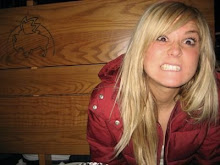Political socialization refers to the way in which a society trnsmits poltiical orientations--knowledge, attitudes or norms and values--from generation to generation (59).
The major objects toward which support is directed:
authority figures (government)
the regime
How does each gen. born into the American political system come to accept (or reject) the previous?
"The childs marginal intersts in things political combined with the complexities of the object itself discourages a clear perception of the overall nature of gov. This enormously complicates the task of isolating the specfic image and attitudes that children do acquire" (62).
DATA: 2nd-8th graders in metropolitian cities.
Tabula rasa conception of children... though the political marks, thereupon, begin early (62).
The Crystallization of "government"
2nd grade uncertainty: 27%
8th grade uncertainty: 10%
Smybolic accociation of government (authors use pictures):
younger children associate presidents with government--the more personal, personable, charismatic options.
as children age they move from a "personalized" conception to one better characterized as "legal-rational" plus gov becomes depersonalized (68).
the concept of government and the lawf-making function (ask question; given 4 options--pres, cong, SC, and IDK):
as children age they are better able to recognize congress as the law making body; the youngest group says president.
Differentiating govenmental from non governmental objects (milkman, police officer, etc--all individs):
page 73 here
Saturday, April 12, 2008
Subscribe to:
Post Comments (Atom)

No comments:
Post a Comment